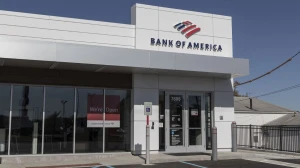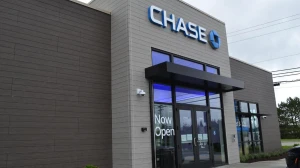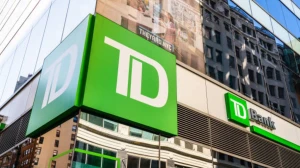
What is a Share Draft Account? How Does a Share Draft Account Work?
A Share Draft Account is like a credit union's checking account, offering check-writing and ownership in the union.
Published Sep 13, 2023 | Updated Sep 13, 2023 | 📖 8 min read
On This Page
- What is a Share Draft Account?
- How Does a Share Draft Account Work?
- How to Open a Share Draft Account?
- How to Choose a Share Draft Account?
- Is a Share Draft Account FDIC Insured?
- What are the Pros and Cons of Share Draft Account?
- Is a Share Draft account a Transaction account?
- Share-Draft Accounts vs Checking Accounts
What is a Share Draft Account?
A share-draft account is essentially a credit union's equivalent of a traditional bank checking account. To understand the concept of a share-draft account, it's important to distinguish between banks and credit unions. Banks are profit-oriented institutions that offer various financial products to consumers, aiming to generate income from those services.
On the other hand, credit unions are not-for-profit financial institutions collectively owned by their members, prioritizing the financial well-being of their members over making profits. When individuals deposit funds into a credit union share-draft account, they are essentially purchasing shares in that credit union.
Share-draft accounts, established under the Consumer Checking Account Equity Act of 1979, provide credit union members with a checking account-like service. They allow account holders to access their account balances by writing checks (or drafts) against their accounts.
How Does a Share Draft Account Work?
In the context of credit unions, accounts are referred to as "shares," signifying the partial ownership that members have in the credit union itself. The term "draft" is essentially synonymous with a check. Thus, a share draft account is a financial account that allows members not only to write checks for their financial transactions but also represents their shared ownership in the credit union.
This unique blend of terminology signifies that account holders both enjoy the conveniences of a traditional checking account, such as writing checks and using debit cards, and also have a stake in the credit union's collective ownership structure, contributing to the cooperative and member-focused nature of credit unions.
How to Open a Share Draft Account?
Opening a share draft account at a credit union involves several straightforward steps:
- Eligibility Check: First, ensure that you are eligible to become a member of the credit union where you wish to open the share draft account. Credit unions often have specific membership requirements, which can include residing in a particular region, working in specific job sectors, or being associated with particular organizations or groups, such as a church.
- Minimum Requirements: Check for any minimum deposit or balance requirements. Some credit unions may require an initial deposit to open the account or impose minimum balance criteria to earn dividends or avoid fees.
- Required Documentation: Gather the necessary documentation. To open a share draft account, you typically need to provide the following:
- A government-issued photo ID (e.g., driver's license or passport).
- Your Social Security number or taxpayer identification number.
- Proof of your current address, such as a utility bill or a piece of mail with your name and address.
- Any credit union-specific documents or identification required.
Once you've ensured your eligibility, met any minimum requirements, and gathered the necessary documentation, visit the credit union's branch or website to initiate the account opening process. The credit union's staff or website will guide you through the steps, helping you complete the necessary paperwork and providing information on the account terms and features.
How to Choose a Share Draft Account?
Choosing a share draft account, whether at a credit union or a bank, requires careful consideration based on your financial needs and preferences. Here are steps to guide your decision:
- Understand the Purpose: Determine your main goals and reasons for opening the account. If you need an account for everyday spending, receiving paychecks via direct deposit, and easy access to cash through a debit card and ATMs, a share draft account is suitable. If you have a larger sum of money to save and potentially earn dividends, you may consider other account options like savings accounts, certificates of deposit (CDs), or money market accounts.
- Access to Cash: Check the convenience of accessing cash. Share draft accounts usually come with a debit card, but it's essential to ensure you have access to a network of ATMs that are either fee-free or offer low fees. Many credit unions offer access to a nationwide network of ATMs to make cash withdrawals and transactions more accessible.
- Mobile Banking and Online Features: Evaluate the credit union's digital banking capabilities. Verify the functionality of their mobile banking app and online banking services. Check app store ratings and user reviews to gauge the quality of their digital offerings. Ensure that their technology aligns with your needs, especially if you rely heavily on mobile banking.
- Integration with Personal Finance Apps: If you use personal finance or budgeting apps to manage your finances, confirm whether the credit union's share draft account can seamlessly integrate with these applications. Compatibility with third-party apps can streamline your financial management.
- Dividend-Earning Potential: Some credit unions offer high-yield share draft accounts that can earn dividends, which are similar to interest. Evaluate the dividend rates offered by different institutions, as they can vary widely. While dividend earnings shouldn't be the sole reason to choose a credit union, it can be a valuable bonus.
- Read the Fine Print: Pay close attention to the terms and conditions, fees, and any account-specific requirements. Understand the fee structure, including potential charges for overdrafts, ATM usage, or account maintenance. Look for any minimum balance requirements and how they may affect your account.
- Consider the Total Package: Ultimately, consider the overall package of services and benefits offered by the credit union or bank. Assess the institution's commitment to customer service, its community involvement, and its willingness to share profits with members.
Is a Share Draft Account FDIC Insured?
No, a share draft account is not FDIC insured. Share draft accounts are provided by credit unions, and they are insured by the National Credit Union Administration (NCUA), not the Federal Deposit Insurance Corporation (FDIC). The NCUA provides similar insurance and protections to credit union accounts as the FDIC does for bank accounts.
Under the NCUA, credit union accounts, including share draft accounts, are protected by the National Credit Union Share Insurance Fund (NCUSIF). This insurance provides coverage for up to $250,000 per share owner, per insured credit union, for each account ownership category.
So, if you are a member of a federal credit union or a state-chartered credit union that is insured by the NCUA, your share draft account is safeguarded by the full faith and credit of the federal government, ensuring the safety of your deposits even in the event of a credit union's failure.
What are the Pros and Cons of Share Draft Account?
Pros of a Share Draft Account:
- Share draft accounts given by credit unions often pay dividends, which are similar to interest earned in a bank checking account. This means you have the potential to earn a financial return on your account balance.
- Many credit unions offer share draft accounts with lower or no monthly maintenance fees compared to traditional bank checking accounts. This can lead to cost savings for account holders.
- Credit unions typically have a strong community and member-oriented approach. By opening a share draft account at a credit union, you become part of a cooperative institution that prioritizes the financial well-being of its members.
Cons of a Share Draft Account:
- Credit unions often have specific membership requirements, such as residing in a particular region, working in specific job sectors, or belonging to specific organizations. Not everyone may be eligible to join a particular credit union, limiting access to share draft accounts.
- Some credit unions may require a minimum account balance to earn dividends. If your balance falls below this threshold, you may not receive dividend payments.
- Credit unions may have a smaller branch and ATM network compared to large national banks. This could limit your access to physical branches and ATMs, especially if you travel frequently.
Is a Share Draft account a Transaction account?
Yes, a share draft account is a transactional account. It serves the same primary purpose as a traditional checking account, allowing account holders to conduct everyday financial transactions, including writing checks, making debit card purchases, and withdrawing cash from ATMs.
The term "share draft" is used by credit unions to emphasize the dual role of account holders as both shareholders and users of the account. In essence, it combines the features of a checking account with the ownership structure of a credit union, making it a transactional account tailored to the credit union's cooperative model.
Share-Draft Accounts vs Checking Accounts
Share draft accounts and checking accounts are similar in their fundamental functionality, as they both serve as transactional accounts for managing everyday spending and finances. Here are the key points of comparison:
- Functionality: Both share draft accounts and checking accounts allow account holders to write checks, make debit card purchases, and conduct various payment and transactional activities to manage their daily financial needs.
- Interest Earnings: Share draft accounts typically pay dividends, while most traditional bank checking accounts do not earn interest. Credit unions use the term "dividends" to reflect their cooperative membership structure, where profits are shared with members.
- Account Terminology: While the functionality is similar, credit unions may refer to their transactional accounts as "share draft accounts" to emphasize the ownership and membership aspect within the credit union. Some credit unions, however, use the term "checking accounts" interchangeably.
- Dividend Rates: The dividend rates on share draft accounts may vary among credit unions and depend on the organization's policies and the prevailing annual percentage yields (APYs) in the financial market. Some credit unions offer competitive dividend rates.
- Bank Options: Both banks and credit unions may offer checking accounts, but credit unions have a distinct cooperative structure and profit-sharing model. As a result, some credit unions' share draft accounts are recognized as among the best checking accounts available, depending on their dividend rates and features.
What is a Share Draft Account - FAQs
1. What is a Share Draft Account?
A share draft account is a credit union's version of a checking account, combining everyday transactional features with membership benefits.
2. How do Share Draft Accounts Differ from Checking Accounts?
Share draft accounts function similarly to checking accounts but often pay dividends, emphasizing cooperative ownership.
3. Are Share Draft Accounts Insured?
Yes, share draft accounts at credit unions are insured by the National Credit Union Administration (NCUA).
4. What Are the Membership Requirements for Share Draft Accounts?
Membership requirements for share draft accounts may include living in a specific region or belonging to a particular organization or community.
5. Can Share Draft Accounts Earn Interest?
Share draft accounts may earn dividends, similar to interest, depending on the credit union's policies and prevailing rates.




